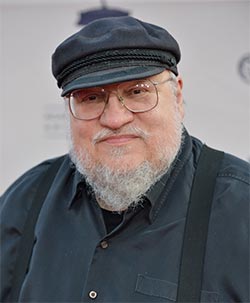
Harlan Ellison died in his sleep the day before last. He was 84.
It was a gentle ending for a turbulent soul. Not entirely unexpected. Harlan had been in very bad health since a stroke laid him low a couple of years ago. For the world of science fiction and fantasy — he always preferred being called a fantasist to being called a science fiction writer, and he hated being called a “sci-fi writer” — this is another brutal loss in a year that has been full of them. The same is true for the larger world of literature. Harlan was not just a great fantasist and/or science fiction writer; he was a great writer, period. When he was at the top of his form, from the late 60s through the 70s and well into the 80s, there was no finer short story writer in all of English literature.
Harlan was fifteen years older than me. He was part of a generation of writers who emerged in the late 50s and early 60s, a generation that included such giants as Robert Silverberg, Roger Zelazny, Algis Budrys, Ursula K. Le Guin, and Samuel R. Delany. They were the New Wave generation, and they remade the genre in their own image, none more so than Harlan, whose anthology Dangerous Visions and its sequel Again, Dangerous Visions not only outraged and delighted tens of thousands of readers, but had an enormous influence on the writers of the generation that followed, my own generation. Those books blew the doors off the hinges in ways that might seem incomprehensible to those who did not live through those times; they opened doors to worlds and worlds of possibilities, to lands of the imagination that John W. Campbell and H.L Gold never dreamt of, and I rushed on through, together with most of my contemporaries. Writers of the Golden Age wanted to impress JWC; writers of my youth wanted to impress Harlan. He was a hero to us.
The first time I met Harlan in person was at 1972 Lunacon at the old Commodore Hotel above Grand Central Station. He read “The Whimper of Whipped Dogs,” a powerful story made even more powerful by his reading (no one read better than Harlan, ever), and gutted the entire audience. A few hours later, he moderated the New Writers Panel. The new writers in question included Gardner Dozois, Jack Dann, a couple of Haldemans (I think), and Geo. Alec Effinger. Harlan did the panel as if it were the old tv show Queen for a Day, and had the whole ballroom howling with laughter. I’ve seen half a dozen panels as funny as that one in the half century since, but never one that was funnier. Laughter and tears; he could evoke them both.
I was a new writer myself in ’72, with maybe four or five sales under my belt, but nowhere near the stature to be invited to be on any panels. (I would have to wait another three years for that. I actually won my first Hugo before being asked to be on my first panel. In those days, you were expected to pay your dues before they put you on stage). Nonetheless, I screwed up my courage enough to approach Harlan in the hall and introduce myself. To my surprise, he knew who I was; he’d seen the handful of stories I had published by that point. But when I asked him if I could submit a story to him for The Last Dangerous Visions, he shot me down quickly and firmly. The book was done, he said, and would be out that Christmas. (Years later, Harlan did write me and ask me to send him something. I sent him an early draft of my story “Meathouse Man,” the darkest and most dangerous story I had in me at the time. He rejected it almost by return mail, with a scathing letter that ripped it to shreds. He was completely right about everything he said. So I gnashed my teeth, muttered curses under my breath, and rewrote the story from beginning to end, making it four times as long and a hundred times as good. When I sent it back to him… he rejected it again. He was not easy to please. Eventually I sold the story to Orbit… but though Damon Knight published it, it was Harlan who edited it, and helped me make it what it is, for good or ill).
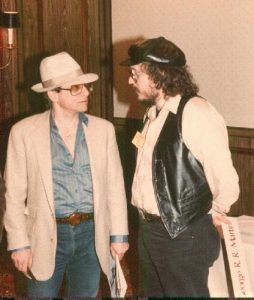
GRRM & HE at WFC 1983
Of course, I ran into Harlan many times in the decades that followed, at cons and awards banquets, and even at his fabled house in Sherman Oaks, which I visited for the first time when Lisa Tuttle was living there. Lisa was only one of a succession of young writers that Harlan welcomed into Ellison Wonderland; Edward Bryant, James Sutherland, and Arthur Byron Cover preceded and followed her, and no doubt others I’ve forgotten. They paid no rent. All that Harlan demanded of them was that they write. These days they’d call it mentoring, I suppose. Things were less formal in those days, but the bottom line was, very few people ever went as far as Harlan when it came to encouraging and supporting young writers. He taught at Clarion almost every year in those years, and when he found a talented newcomer, he went above and beyond the call of duty in promoting him or her.
Harlan Ellison was also deeply entwined in my own beginnings in television, as it happens. It was Phil DeGuere, the executive producer and showrunner of the Twilight Zone revival of 1985-86, who first took a chance on me and gave me my first script assignment, but it was Harlan who suggested that I be given the rewrite of “The Once and Future King,” the Elvis episode that landed me a place on staff. As irony would have it, Harlan himself took over the short story I’d originally brought to Phil, a Donald Westlake story called “Nackles,” which proved to be his undoing when the CBS censors tried to rip the heart of his script, the first he’d been slated to direct. Harlan quit rather than let that happen. Lots of people talk the talk, especially in these sad sick days of the internet, but Harlan always walked the walk as well. Censorship was anathema to him.
Let there be no question; Harlan Ellison could be a difficult man. He did not brook fools gladly, and he was quick to take offense at any slight, real or perceived. Most people, as they go through life, make an enemy or two along the way… especially people who never learned to keep their voices down and their heads bowed, which was never Harlan. Harlan was the only one I’ve ever known who had so many enemies that they actually formed a club, called… of course… the Enemies of Ellison. But he had far more friends than enemies, as can be seen from all the heartfelt eulogies going up all over the internet. He was a fighter, and fighters always make enemies. He fought against censorship with the Dangerous Visions anthologies. He fought for racial equality, marching with King at Selma. He fought for women’s rights and the ERA. He fought publishers, defending the rights of writers to control their own material and be fairly compensated for it. He served on the Board of Directors of the WGA. He gave of himself to Clarion, year after year.
Did he make mistakes? Sure he did. Was he wrong from time to time? Definitely. Who isn’t? Was he loud, opinionated, sometimes obnoxious? Oh, all of that… but he was also kind and caring and generous, and a relentless champion of excellence, free speech, and equal rights. No one goes through this life without a stumble. The question is not, “was he perfect in every way?” but rather “did he do more harm or good?” Harlan Ellison was no perfect paladin, but he left the world… and our genre… a better, richer, fairer place than he found it, in half a hundred ways… and that’s why you are seeing such an outpouring of affection for this temperamental, exhausting, relentless, raging, loving, roaring giant who lived among us for a time.
He was a complicated guy, a genius in his own way, and his muse was an angry harpy… but oh, he could write.
And that’s the thing that matters, in the end. Long after the enemies of Ellison and the friends of Ellison have all followed him to the grave, long after the criticisms and the paeans of praise have faded away and been forgotten, the stories will remain.
Current Mood:  sad
sad




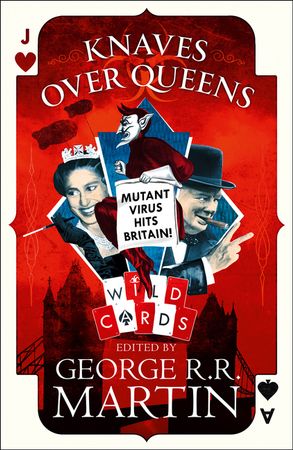
 energetic
energetic
 amused
amused
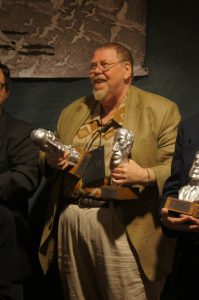
 melancholy
melancholy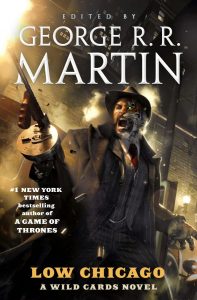
 bouncy
bouncy
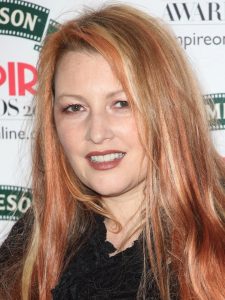
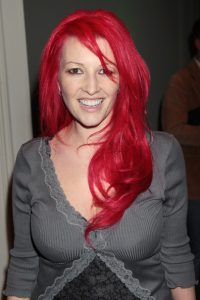
 excited
excited
 awake
awake